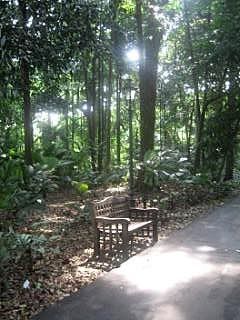Inertia

Cries ring through darkness
Invisible to the world
Lone in a sequestered place
The end, imminent
Oh light! Kill my apathy
Mere deception or true hope?
Epilogue:
This poem is written in form of a Sedôka, a form of Waka, which is in turn a genre of Japanese poetry. The pattern is 5-7-7-5-7-7.
A lone soul who is attempting to navigate his way out of the dense forest and yet, his attempts are futile, for he is engulfed by the darkness as he struggles to persevere on. Unable to foresee what events are to unfold, he continues aimlessly, enveloped with both frustration and desperation. Morbid thoughts begin to invade his mind, and all hope seems lost, a glimmer of light descends down from the Heavens above, as if light was the messenger of divinity, leading him to a place where he can rest and ponder on the reason to his plight. As he contemplates on his dismayed existence, the light becomes more intense and it makes his perspective clearer. However he begins to doubt if this new found sense of direction would last and save him from falling deeper into the abyss. This scene is what the image depicts in my mind’s eye.
The scene portrayed is a representation of the power of nature, whereby it has the ability to influence the thoughts and emotions of an individual. In Mary Shelley’s work, Frankenstein, Victor Frankenstein often has he mood affected by nature; feeling a “tingling long-lost sense of pleasure” while being surrounded by majestic mountain scenery and within a short period of time, the “rain was pouring in torrents, and thick mists hid the summits of the mountains, so that I even saw not the faces if those mighty friends”. Nature becomes a manifest, for it can either make Frankenstein feel joy or remind him of guilt, shame and regret.
The isolation of the bench in the picture against the backdrop of vegetation in the picture also suggests the insignificance of mankind and his inventions as compared to marvellous creations of God.
No comments:
Post a Comment